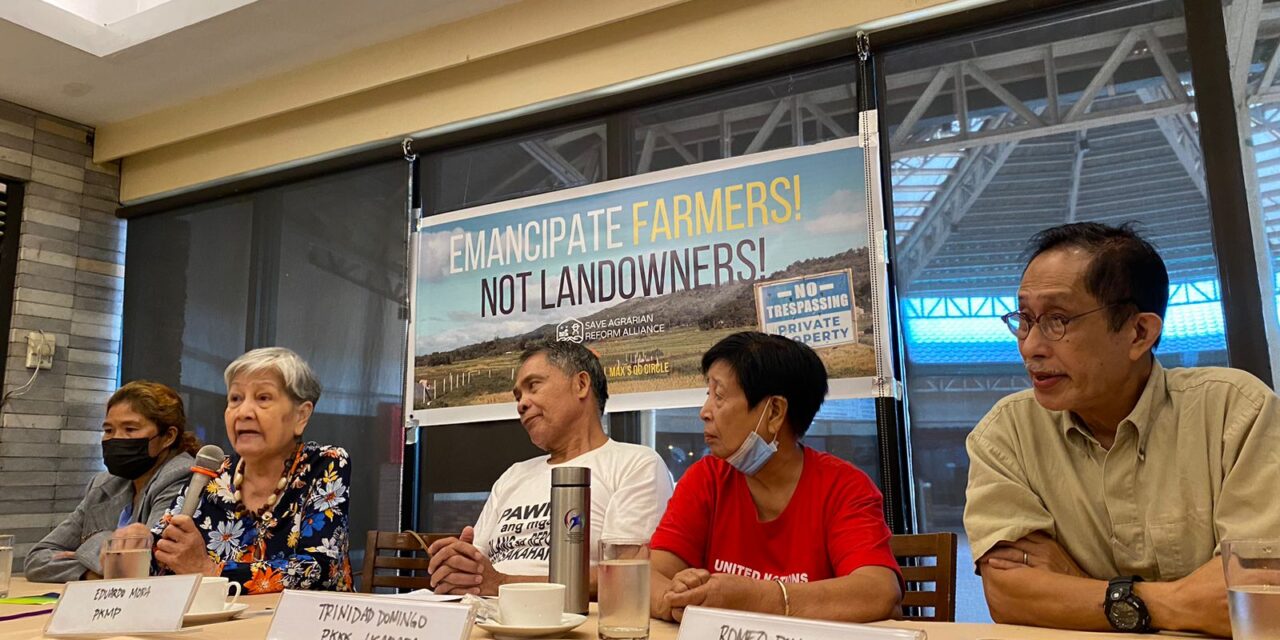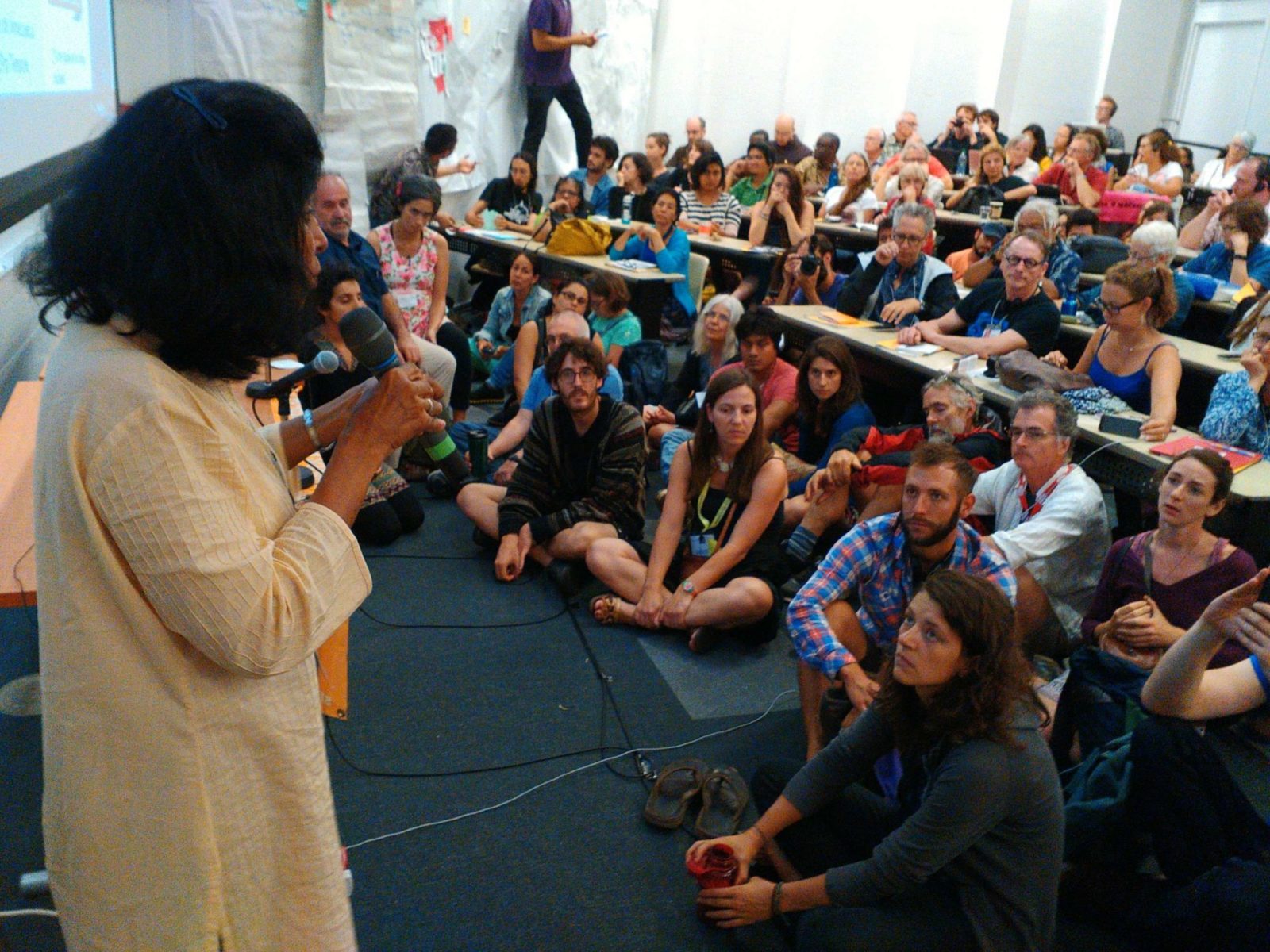PRESS STATEMENT:
Emancipating Farmers, or Land Owners? The New Agrarian Emancipation Act needs a revalidation of ownership in agrarian lands
The recent signing of Republic Act 11953 or the New Agrarian Reform Emancipation Act of President Ferdinand Marcos Jr., has been lauded by many as a “landmark” policy to ease the financial burdens of agrarian reform beneficiaries. Proponents claim that the law’s goal is to defeat rural poverty, increase agricultural productivity, and improve national food self-sufficiency. But while it may look good on paper, for the law to be an effective instrument of social justice, it must be made clear that farmers will be the true beneficiaries of the policy.
To condone the debts of more than 600,000 agrarian reform beneficiaries will not be an easy feat. The law stipulates that the condonation of debts will happen in two stages. For the first stage, there will be outright condonation for around 260,000 agrarian reform beneficiaries (ARBs). These represent 43 percent of total number of beneficiaries who till around 409,000 hectares of agrarian lands. Their names and other loan details had already been submitted by the Land Bank to Congress. But for the second stage, the remaining balance of more than 346,000 ARBs—representing 57 percent of total beneficiaries and tilling more than 763,000 hectares—shall only be included upon submission by the LBP and the DAR of the details of indebtedness to Congress. It remains unclear who among the ARBs are included in the list already submitted and will therefore benefit from outright condonation under the law; and who among them are to be included in the list that LBP and DAR are yet to develop and submit to Congress within a three-year period. It is also unclear whether the process that generated the list already submitted, and the process to develop the list to be submitted, had and will have genuine participation and involvement of ARBs.
Furthermore, we believe a bigger challenge lies in determining who still has actual control over the lands awarded through the Comprehensive Agrarian Reform Program. Since the onset of the program, many ARBs have been forced into conditions of poverty that compelled them to mortgage or sell their lands. In this context, we urge the government to conduct a stern revalidation, especially in landholdings that are leased or mortgaged, and to determine if farmer-beneficiaries and their families still have actual possession of their awarded farmlands. The condonation cannot be a blanket act, and it would go against the very ideals of this law if the realtors, property developers, and even land owners themselves would reap the benefits of condonation.
We could attest that a great number of landholdings are still in the stranglehold of its original landowners despite agrarian reform coverage. In this case, not only would the landowner receive just compensation in accordance with the agrarian reform law, but would also be exempt from paying arrears in amortization as well as real estate taxes. Furthermore, in the last 50 years of agrarian reform implementation, many beneficiaries under PD 27 and CARP have already sold off their land titles. A number of such lands, even irrigated ones, have already been converted into non-agricultural use.
Additionally, in a context where farmers continue to suffer from poverty and lack of government support, another potentially negative outcome of the law is that it could facilitate the sale of land. With the condonation of amortizations to the Land Bank of the Philippines, encumbrances to the sale and transfer of Certificates of Land Ownership Awards (CLOAs) would be removed, thereby enabling realtors and property developers to mainstream more of such land holdings into land markets. In this light, we urge the government to strictly enforce the rules and regulations on the sale and transfer of agrarian lands, such as the 10-year moratorium stipulated in the CARP. The government must also investigate cases involving the issuance of titles to unlawful beneficiaries, cancellation of CLOAs, and exemption or exclusion of land holdings already amortized by agrarian reform beneficiaries.
We believe that above all, a timely, effective and uncompromising implementation of land acquisition and distribution is still key in pursuing the social justice goals of agrarian reform. The government must understand that small-scale farmers’ land security is ultimately necessary in revitalizing local agriculture and realizing national food self-sufficiency, both of which the Marcos administration had vowed to achieve. Furthermore, delays in the implementation of agrarian reform will increase the cost of land acquisition and distribution, especially against the backdrop of increasing urbanization and gentrification in the countryside.
The new law does not cure old flaws of the agrarian reform program. While it recognizes the incapacity of farmers to amortize as their incomes remain low, the law is silent about addressing the root cause of this incapacity. Instead, the government should be taking more seriously the challenge of qualitatively improving the productivity of farmer-beneficiaries and creating the conditions necessary to make peasant farming livable and sustainable. This means ensuring that farmers have access to comprehensive support services, among others.
We enjoin the call for vigilance in the implementation of the New Agrarian Emancipation Act, and we urge the government to initiate a process of dialogue with farmers to enable an inclusive, consultative, and participatory process in the formulation of its Implementing Rules and Regulations.#
Formed in 2011, the Save Agrarian Reform Alliance is a coalition of National Farmers and Peasant’s Movements, Civil Society Organizations and Agrarian Reform Advocates.
For more information, please contact:
Mr. Romeo Royandoyan – Centro Saka Incorporated | 0917.528.60.01
Ms. Elvira Baladad – Paragos Pilipinas | 0930.796.99.63









